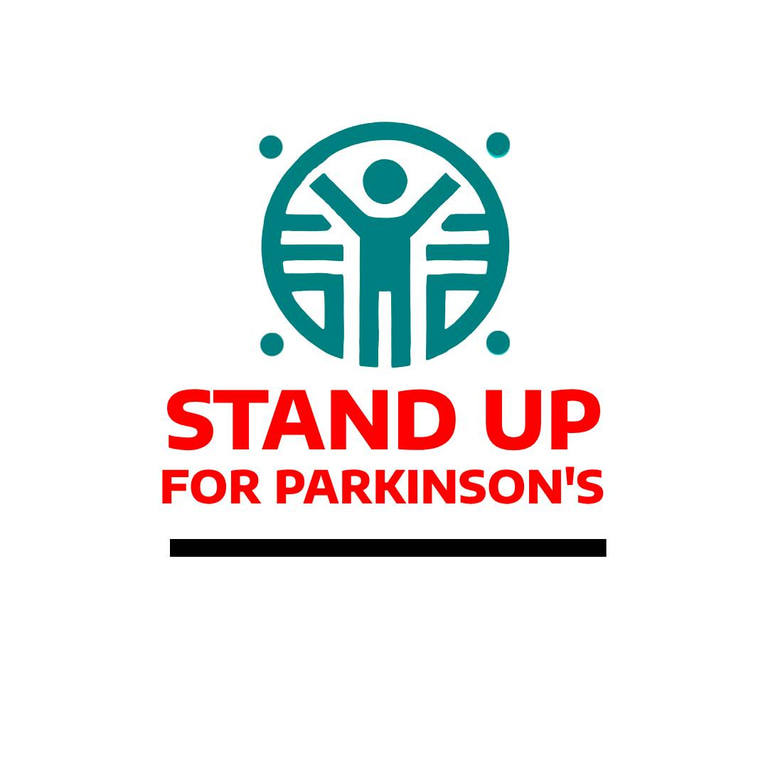Join me in challenging stigma, building awareness, and creating community for over 110,000 Canadians living with Parkinson’s.
These three words in just 1 month were uttered
900 times in Canada
1,500 times in the UK
7,500 times in the United States
In April 2023, I reached out to people with Parkinson's that I had contact with from all over the world. I asked them about the day they were diagnosed, and I heard too many stories of people walking into a doctor's office, being told, "You have Parkinson's. Here are some pills. Come back and see me in six months." This often happens to people who weren't expecting a Parkinson's diagnosis or who were often alone not expecting to hear such a life changing diagnoses that day. Many are left with nowhere to turn, spending months or even years feeling isolated at home. There is a vast wealth of information, often from fellow PWP. This is one of the reasons I'm dedicated to spreading awareness and providing resources for those newly diagnosed. You are not alone.
76% of people have waited up to a year for a diagnosis
24% had no idea, didn't even have a thought of Parkinson's
24% suspected that they might have Parkinson's
45% of people were given this diagnosis while alone at the doctor's office
19% were misdiagnosed
12% were diagnosed and told to go home with a prescription and to come back in 6 months, period.
"You Have Parkinson's"
Parkinson's disease is a progressive brain condition that causes movement problems, stiffness, and balance issues. It's caused by the death of nerve cells in the brain that produce dopamine.
Symptoms Tremors, Muscle stiffness, Difficulty speaking, Impaired balance, Slowed movement, Posture changes, Cramped handwriting, Drooling, Mask-like facial expression, and Trouble swallowing.
Causes The cause of Parkinson's is unknown, but it's likely a combination of genetics and environmental factors. - People with a family history of Parkinson's have a higher risk. - Exposure to air pollution, pesticides, and solvents may increase risk.
Treatment - There is no cure for Parkinson's, but therapies and medicines can reduce symptoms. - Surgery and lifestyle changes can also help.
Other effects Parkinson's can also cause mental health issues, sleep problems, and pain. - Many people with Parkinson's disease also develop dementia. - Parkinson's disease usually occurs in older people, but younger people can also be affected.
What is Parkinson's?
Learning about Parkinson’s and what to expect can make your journey more manageable, helping you and your family live well. While Parkinson’s changes many aspects of life, you can find help, support, and resources at Parkinson Canada ttps://www.parkinson.ca. Whether you’ve just learned you or a family member have Parkinson’s, or have lived with it for years, read on for valuable information.
Everyone’s experience with Parkinson’s is unique. Symptoms, their progression, and the way they affect daily life vary from person to person. Some may experience tremors or stiffness, while others may notice changes in speech, walking, or energy levels. Beyond physical challenges, Parkinson’s can bring emotional and mental health considerations that are equally important to address.
More than 1100,000 people in Canada are living with Parkinson’s. These numbers underscore the importance of awareness, education, and community support to help individuals and families navigate this journey with confidence.
Understanding Parkinson’s
What is Parkinson's Disease?


Parkinsonism is an umbrella term for a group of conditions that cause similar symptoms to Parkinson's disease, while Parkinson's disease is a specific condition that falls under the category of parkinsonism.
Parkinson's disease
The most common form of parkinsonism, accounting for about 80% of cases
The cause is often unknown, but researchers think it's a combination of age, genetics, and environmental factors
Symptoms include tremors, slow movement, and stiffness
The primary treatment is the medication levodopa
Parkinsonism
A general term for a group of neurodegenerative diseases that cause movement problems similar to Parkinson's disease
Includes other conditions such as multiple system atrophy, Lewy body dementia, and progressive supranuclear palsy
Some parkinsonisms are treatable or even curable
Some parkinsonisms progress more rapidly than Parkinson's
Some parkinsonisms don't respond to levodopa treatment like Parkinson's disease does
It can be difficult to differentiate Parkinson's disease from other parkinsonisms, especially in the early stages. Neuroimaging studies and neurological examinations can help with diagnosis.
What is Parkinson's versus Parkinsonism

Ask the MD: Is parkinsonism the same as Parkinson's disease?


Women with Parkinson's disease (PD) may experience unique challenges, including:
Diagnosis
Women tend to be diagnosed younger and may be of childbearing age. Menopause can also complicate diagnosis and treatment.
Symptoms
Women may report different symptoms than men, including more mood and sleep disturbances, anxiety, depression, fatigue, and pain. They may also experience more non-motor symptoms, such as anxiety, depression, and fatigue.
Medication
Women may experience more medication-related dyskinesias (involuntary, erratic movements), motor fluctuations, and “wearing off” of medication.
Treatment
Women are less likely to receive advanced treatments like Deep Brain Stimulation (DBS).
Care
Women are less likely to be cared for by a PD specialist, neurologist, or movement disorder specialist. They also access medical care for their Parkinson's less than men.
Women and Parkinson's https://www.parkinson.ca/women/highlight=women
https://www.pmdalliance.org/?s=women PMD Alliance





Parkinson’s affects everyone differently, and for women, the challenges often go unrecognized. Caitlin Nagy, who lives with Parkinson’s, joined CTV’s The Social with Parkinson Canada’s CEO, Karen Lee, to share their insights on this important issue.xt here...


